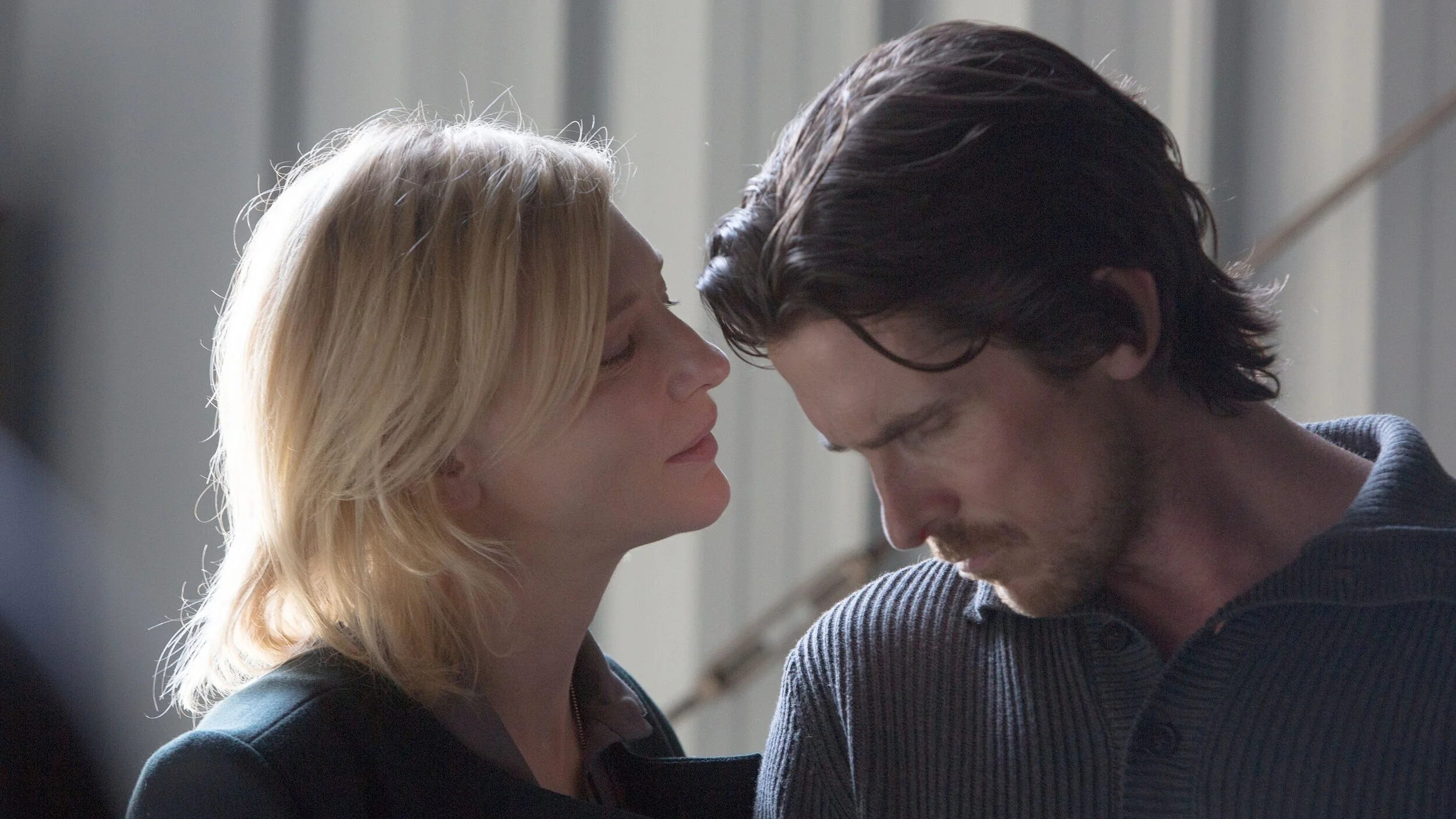Knight of Cups
Terrence Malick’s latest film is innovative and extraordinary, but that may not be a recommendation.
Professing profundity: Cate Blanchett and Christian Bale
This is a very interesting film, but not one that you are likely to regard as very good unless you are drawn to avant-garde cinema of the kind made by, say, Apichatpong Weerasethakul. It is possible to describe its plot in terms that suggest something much more straightforward and conventional than what is on the screen. Christian Bale plays Rick, a scriptwriter working in L.A. and both there and in Las Vegas we find him taking up with various women in a quest for happiness that nevertheless eludes him. One can add that, as expected from any film by Terrence Malick who is the director here, the photography is absolutely stunning (the photographer on Knight of Cups is Emmanuel Lubezki).
However, not for the first time in the work of this writer/director, the actors instead of getting fully-fledged roles seem to be there to be treated in much the same way as a painter uses colours to apply to his canvas. Not even Bale in the central role is given much to work on, and it is not down to the writing but to their relationship with the camera that three of the actresses here –Natalie Portman, Freida Pinto and Cate Blanchett, the latter as the one woman that Rick marries – manage to leave some kind of a mark. That we never fully understand why Rick’s marriage collapses is in keeping with the style adopted.
What makes Knight of Cups special is that it seems to enter new waters representing what might be seen as a development in Malick’s style. Indeed what is done here is so different from any other film that by way of comparison I found myself thinking of the later experimental novels of Virginia Woolf. Usually in cinema it is what we see that carries forward the narrative of a film, even if the film’s soundtrack offers a commentary or discloses what the characters are thinking. But here the story itself, often expressed through such thoughts, resides in voice-overs. The stress on the soundtrack is all the stronger because it features in addition a number of classic readings as recorded on disc by John Gielgud and Charles Laughton and the choice of music is made a key element (among classical composers featured, two - Vaughan Williams and Grieg – provide what almost count as theme tunes). In consequence the visuals become simply an accompaniment but an important one as when, in an echo of Antonioni’s use of architecture and empty streets, a sterile world is suggested. Rick’s disillusionment with life is linked to this and, late on, a religious theme emerges (but not everyone will taken by the notion that God provides our suffering as a means of ensuring that we search the more strongly for something beyond our own happiness).
Not least due to this unique counterpoint between sounds and images, Knight of Cups is so unusual that I was never bored. But I did feel that it was pretentious, and that to a degree that robbed it of being a work which would communicate with audiences who would then be glad to respond to it in their own way.
MANSEL STIMPSON
Cast: Christian Bale, Cate Blanchett, Natalie Portman, Freida Pinto, Brian Dennehy, Antonio Banderas, Wes Bentley, Imogen Poots, Isabel Lucas, Teresa Palmer, Armin Mueller-Stahl, Michael Wincott, Cherry Jones, Dane DeHaan, Ryan O’Neal, Sergei Bodrov, and the voice of Ben Kingsley.
Dir Terrence Malick, Pro Nicolas Gonda, Sarah Green and Ken Kao, Screenplay Terrence Malick, Ph Emmanuel Lubezki, Pro Des Jack Fisk, Ed A.J. Edwards, Keith Fraase, Geoffrey Richman and Mark Yoshikawa, Music Hanan Townshend, Costumes Jacqueline West.
Dogwood Films/Waypoint Entertainment-StudioCanal.
118 mins. USA. 2015. Rel: 6 May 2016. Cert. 15.


